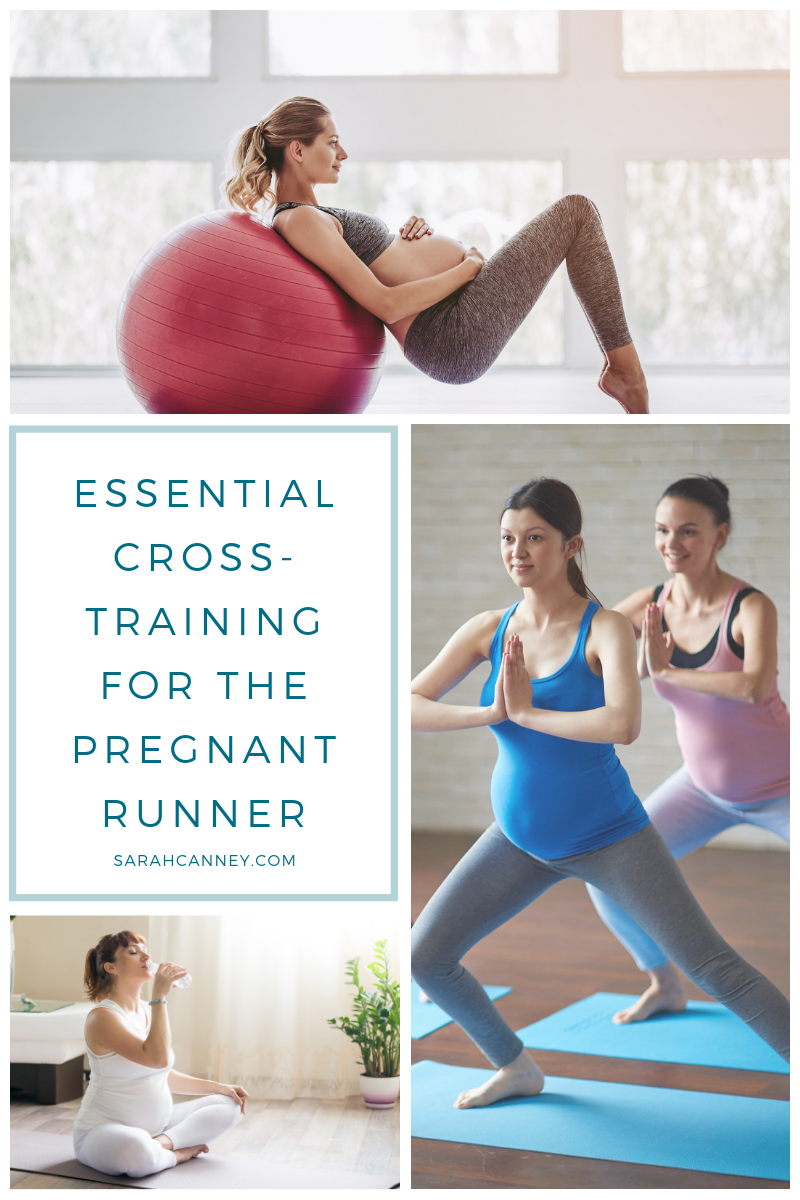Essential Crosstraining for the Pregnant Runner
I hit the 24 week mark this weekend and with that milestone, my thoughts have shifted from running to cross training. Although I love logging miles, I will probably be intentionally reducing my running as I approach my due date. Instead of running I'll be putting more of an emphasis on crosstraining: specifically pelvic floor, hip and core strength. Pregnancy and childbirth can weaken the pelvic floor (the pelvic floor is comprised of muscles that support posture and your internal organs), causing prolapse of the bladder or uterus in extreme cases. Taking the time to strengthen the pelvic floor before labor and delivery can be essential to a quicker recovery after. My pelvic floor was very weak after the labor and delivery of my second child (September 2012) and I ran too soon after giving birth, exacerbating the weakness and causing problems. My goal this time is to put running aside in the last few months of pregnancy and take the time to strengthen my pelvic floor and supporting muscles. There are three 'methods' that I've found to be essential for pregnancy and running: the barre method, pilates and physical therapy exercises as demonstrated in the Hab-It DVD series.
Barre: If you can find a good instructor in your area I would highly recommend attending classes. There are plenty of barre DVDs out there, but to learn and maintain the correct posture through each movement, you really need the feedback of a good instructor (experience and knowledge of the human body are essential) and the ability to check yourself in a full length mirror. I've written about the benefits of barre for runners, but it can also be beneficial for pregnancy as well. Moves focus on an awareness and control of your pelvis, strengthen the muscles in your seat, work both adductors and abductors and generally strengthen the muscles of the lower abdomen, hip and pelvis that are so essential to labor and delivery. I've found a great studio, BarreLogic about 45 minutes away from me. It's a drive, but even taking a class every other week makes a difference.
Pilates: Similar to barre, Pilates focuses on an awareness of posture and muscle engagement. The foundation of many of the moves in pilates is an engaged, 'drawn up' pelvic floor. This is the source of stabilization and support for each movement, as it should be in every day life. Although I don't have as much experience with Pilates in a formal classroom as I do with Barre, I know that the discerning eye of an experienced instructor is just as beneficial. Barre borrows many Pilates moves, so naturally they work some of the same muscle groups in the hips, lower back and lower abdomen.
Hab-It DVD: Honestly, I think this is the place to start. Many of us, though we run and are 'in tune' with our bodies are unaware of the small muscles that help control our posture and pelvic floor. The subtle moves outlined in these DVDs will hone your ability to isolate specific muscles and learn to strengthen them. If you're pregnant, a great place to start is reading this anatomy review of your pregnant body. You think you know, but this outline puts in simple terms what is essential (in terms of muscle control and strength) for an easier delivery and a quicker recovery. You can also find great resources for simple exercises in these videos geared towards pregnant women.
I am a firm believer that exercise during pregnancy is beneficial to both the mother and the baby, but the intensity of that exercises needs to be tempered with the knowledge of what is happening in your pregnant body besides the weekly changes to your baby. It's important to be aware of the muscular weakness that pregnancy causes and respect that by easing back on the intensity of your activity and by finding ways to strengthen those muscles. Knowledge, more than anything will keep you (and your baby) healthy and back to your normal activity postpartum.
[Tweet "Essential Crosstraining for the Pregnant Runner #fitpregnancy #runningfortwo #pregnantrunner"]
I am not a physician, midwife, nurse or physical therapist. These are simply recommendations from my personal experience. Please consult your doctor before beginning new forms of exercise during pregnancy.
Do you feel like you were informed during your pregnancy about the changes in your body and the affect of exercise? If you've given birth what do you think contributed positively to your postpartum recovery?
--Sarah
Sarah is a certified running coach with the RRCA and USATF. She and her husband Mark Canney, CPT CSCS collaborate in coaching clients of all ages and abilities to help them reach their running goals. You can learn more about their coaching services HERE.
I love connecting with readers! You can find me here:
Email: RunFarGirl [at] gmail [dot] com
Twitter:@RunFarGirl
Instagram: instagram.com/runfargirl
Facebook:Facebook.com/runfargirl262
Pinterest: pinterest.com/runfargirl
Daily Mile:dailymile.com/people/scanney
